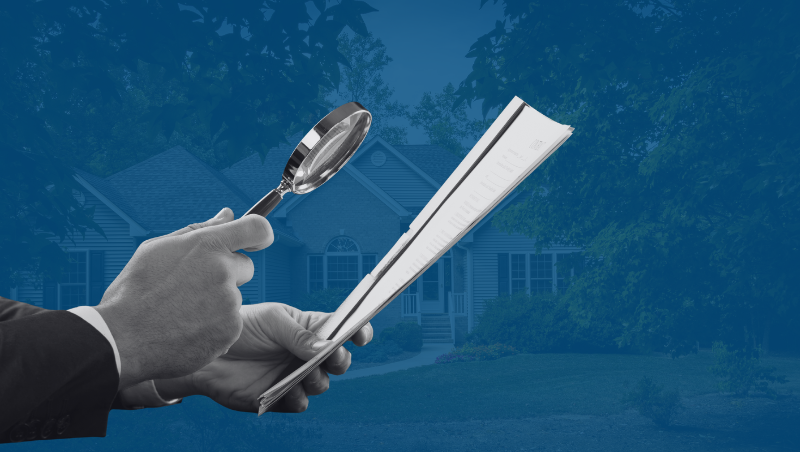The Department of Labor and Employment (DOLE) is a government agency in the Philippines that promotes the well-being of workers and oversees labor-related concerns. It also resolves labor disputes and any violations of labor laws, provides livelihood assistance and job placement, promotes occupational safety, regulates employment practices, and enforces labor laws.
What are the Common Reasons for Filing a Complaint Against an Employer with DOLE?
Employees in the Philippines can file a case against their employer for various reasons, including:

- Illegal Termination occurs when an employer terminates an employee without just or authorized cause, or without following due process. Employees who believe they were unjustly terminated or that due process was not followed can file a case with the National Labor Relations Commission (NLRC).
- Unpaid Compensation includes the non-payment of wages or benefits, overtime pay, holiday pay, and other mandated benefits. Under the Labor Code of the Philippines, employers must pay their employees’ wages on time and in full. Employees who have not received their due compensation may file a complaint for non-payment or underpayment of wages, and can demand the payment of unpaid wages, damages, and attorney’s fees.
- Violation of Labor Standards is when employers fail to provide employment benefits like 13th-month pay, Social Security System (SSS), PhilHealth, and other mandatory benefits. Employees can file a complaint with the Department of Labor and Employment (DOLE) if their employer refuses or delays the release of these benefits.
- Employment Discrimination is illegal in the Philippines. This is when an employee is treated differently or less favorably because of their race, color, religion, sex, national origin, disability, age, and/or genetic information.
- Workplace Harassment is a violation of the law. Employees subjected to harassment, either sexual or otherwise, may file a complaint under the Anti-Sexual Harassment Act and the Labor Code.
- Violation of Health and Safety Standards is when an employer fails to adhere to occupational health and safety standards, resulting in accidents or injuries, the employee may file a case for damages. The Philippines Occupational Safety and Health Standards (OSHS) mandate that employers must provide a safe working environment, and violations can result in both civil and criminal liabilities.
- Constructive Dismissal occurs when employers create unbearable working conditions, forcing the employees to resign, even without direct termination.
Can I File a Complaint Against My Employer with DOLE Anonymously?
The Department of Labor and Employment (DOLE) upholds strict confidentiality when handling complaints to protect the privacy of all involved parties. Both employee and employer rights are fully protected throughout the process. The employer will not be informed about the complainant and the complaint unless it is necessary for the mediation or conciliation process. Additionally, the employee may continue working while their case is being processed, except there are concerns about their safety or well-being.
Where to File a Complaint Against an Employer in the Philippines?
Employees can file the complaints directly to the Department of Labor and Employment (DOLE) regional office through various channels, including online, email, phone, or in person.
For online submissions, complaints should be filed through DOLE’s online compliance portal at https://reports.dole.gov.ph/. Alternatively, employees may send their concerns via email to DOLE’s official email address at hotline1349@dole.gov.ph, though regional offices may have specific email addresses.
Employees may also call DOLE hotline at 1349 for their labor complaints.
For those who prefer to file complaints in person, it is essential to have the correct office address and bring all necessary documents to ensure a smooth process.
How Do I File a Complaint to DOLE?
The aggrieved employee may file their complaint with the Department of Labor and Employment (DOLE) either in person or online.
Filing a Labor Complaint In Person with DOLE

- Consult with a Lawyer. It is advisable to seek legal assistance from a lawyer. They can identify any unfair labor practices and regulations, provide legal advice regarding filing a labor complaint, and offer legal remedies to resolve the dispute. In case of court proceedings, they can be your legal representative and advocate your interest.
- File a Complaint with DOLE. The Department of Labor and Employment (DOLE) is a government agency in the Philippines responsible for handling and resolving any labor concerns and disputes. Any complaints or concerns regarding labor and employment related-matters must be filed and addressed to DOLE.
- Resolution of Dispute. Once the complaint is filed, DOLE will attempt to resolve the matter through a conciliation and mediation process. This process will be facilitated by a DOLE officer, who will conduct a discussion with the employer and employee to reach an amicable settlement without the need for formal litigation.
- File a Formal Case with NLRC. If the dispute fails to be resolved, employees can file a formal case with the National Labor Relations Commission (NLRC). The NLRC is a quasi-judicial body responsible for promoting and maintaining industrial peace based on social justice.
- Present Evidence. It is crucial to present sufficient evidence to support your claims and strengthen the case. This evidence includes pay slips, contracts, company policies, correspondence with the employer, witness testimonies, and medical records (in cases of harassment or workplace injury).
- Issuance of Decision. After reviewing the evidence and hearing from both sides, the Labor Arbiter will issue a decision. If the case involves illegal dismissal or other serious violations, the employer should reinstate the employee or pay the severance benefits. In case of unpaid wages or benefits, the employer must pay the outstanding amounts along with interest and damages.
- Appeal of Decision. If either of the parties is dissatisfied with the decision of the Labor Arbiter, they can file an appeal before the NLRC. Further appeals can be filed to the Court of Appeals or Supreme Court, depending on the legal grounds.
Filing a Labor Complaint Online with DOLE

- Consult with a Lawyer. Seeking legal assistance from a lawyer is advisable. They can identify labor law violations committed by your employer. They can also provide legal remedies to resolve the dispute and guide you through the process. In case of the court proceedings, they can be your legal representative and advocate your interest.
- Access Official DOLE Website. To file a complaint online, visit the DOLE online services portal: https://reports.dole.gov.ph/.
- Fill Out the Complaint Form. Complete the online complaint form by providing your personal information, a detailed description of the nature of the complaint, supporting documents, and the date of the incident or violation.
- Submit Supporting Documents. Attach relevant documents, such as your employment contract, pay slips or payroll records, termination notice, and other proof of evidence, when submitting your complaint online.
- Await Confirmation of Submission. After completing the form and submitting the necessary documents, you will receive a confirmation via email or the platform itself. Keep a copy of the confirmation for your records.
- Monitor the Case. DOLE will review the complaint and may contact you for further information and/or clarification. You may also reach out with the DOLE office handling of your case to be informed about any scheduled meetings or hearings.
Ensure to attend these meetings or hearings and provide any relevant information to support your case. Additionally, regularly check your email for updates and respond promptly to any inquiries from DOLE to expedite the processing of your case.
Can the Employer Retaliate Against an Employee?
Employees who report misconduct, illegal activities, or any workplace issues are protected by the DOLE Administrative Orders and Department Circulars. This means any retaliation against them is punishable by law and employers who are found guilty of such actions may face severe penalties and imprisonment.
What are the Rights of Employees Under DOLE Regulations?
According to DOLE Department Order No. 198, employees have the right to know about the different types of hazards and must be provided with training, education, and orientation. They also have the right to refuse unsafe work if there is imminent danger, and to report accidents and dangerous occurrences.

As a preventive measure, the safety officer can implement a work stoppage or suspend operations if they determine that there is imminent danger. They can do so without fear or reprisal. If there is an imminent danger situation, employers can be temporarily assigned to other areas within the workplace as long as there is no safety or health issue in that area.
What are the Employees’ Welfare Facilities?
All establishments, projects, sites and other work locations should have the following free welfare facilities to ensure humane working conditions:
- Adequate supply of safe drinking water;
- Adequate sanitary and washing facilities;
- Suitable living accommodation for employees, as may be applicable such as in construction, shipping, fishing and night workers;
- Separate sanitary, washing and sleeping facilities for all genders, as may be applicable;
- Lactation station except those establishments as provided for under DOLE Department Order No. 143-15;
- Ramps, railings and the like; and
- Other worker’ welfare facilities as may be prescribed by the Occupational Safety and Health (OSH) standards and other issuances.
What are the Benefits and Compensations Received by Employees Under DOLE Regulations?
Employees in the Philippines have the right to receive both statutory and common benefits, which must be paid by their employers on a monthly basis. These benefits include health insurance, Social Security System (SSS), and Home Development Mutual Fund (HDMF). Additionally, employees are entitled to weekly rest days, holidays, and a maximum of eight (8) hours of work per day. They also have the right to service incentive leaves, such as sick leave, vacation leave, maternity and paternity leave, and other types of leave. Furthermore, employees should receive overtime pay, premium pay, and 13th month pay. In the event of termination, employees are entitled to separation pay, while resigned employees must receive their final pay or pay back wages.
Need further information and assistance regarding Filing a Complaint with DOLE? Talk to our team at Duran & Duran-Schulze Law in BGC, Metro Manila, Philippines to know more about the requirements and process. Call us today at (+632) 8478 5826 or +63 917 194 0482, or send an email to info@duranschulze.com for more information.








246 Responses
Comments navigation
Hello, a HR threatened my girlfriend na hindi ibibigay ang 13th month if nag absent. Please enlighten me on how to put this into perspective, alam ko bawal yun dahil rights niya ang masahuran for her services and also I don’t think right din ang threats.
Hi John,
We’re sorry to hear about your girlfriend’s situation.
Employers can’t withhold the 13th month pay as a disciplinary action for absences. Under Presidential Decree (P.D.) No. 851, all rank-and -file employees are entitled to receive 13th month pay, provided that they have worked for at least one (1) month during the calendar year. Therefore, even if your girlfriend had absences, she is still entitled to receive her pro-rated 13th month pay based on the months she worked and the actual salary she received.
Additionally, the threat made against your girlfriend can be considered a form of harassment or coercion. This can be address by filing a complaint with the Department of Labor and Employment (DOLE).
If you need legal advice or assistance, you may contact us at (02) 8478 5826 or 0917 194 0482, or email us at info@duranschulze.com.
We’ll be glad to assist you and help protect your rights.
Employee ako for 2months na then humihingi ako ng copy ng contract sa employer ko sabi niya pwede naman daw magbigat ng copy ng contract basta hindi ilalabas ng office. Pwede ba yon ?
Hi Shella,
As an employee, you have the right to request a copy of your employment contract for your personal reference. However, if your employer has informed you that copies cannot be taken outside the office, that may be due to strict company policies regarding confidentiality. Some companies do not allow certain documents to be stored or accessed outside the workplace to prevent potential data privacy breaches.
If you have further concerns, you may contact us at (02) 8478 5826 or 0917 194 0482, or email us at info@duranschulze.com.
pwede po bang icomplain sa DOLE ang company namin? unang concern 2 days lang akong absent dahil nagkasakit ako tapos ang sabi hindi na raw ako pwedeng iregularize. pangalawang concern ko is ngayong floating ako hindi kami bayad.
ka
may mga documents ako ng med cert pero parang kahit magkasakit ka basta absent non regularization pa rin.
Hi Jaylen,
Yes, you may file a complaint with the Department of Labor and Employment (DOLE).
If you were absent for only two days due to illness and have a valid medical certificate, this should not automatically disqualify you from regularization — especially if your absence was justified and in good faith.
Regarding your floating status, employees are generally not entitled to salary or benefits during this period. However, the floating status must not exceed six (6) months. For employees under manpower agencies, the period is limited to three (3) months under DOLE Department Order No. 174.
If you need legal assistance on filing a complaint, you may contact us at (02) 8478 5826 or 0917 194 0482, or email us at info@duranschulze.com.
We’ll be glad to assist you.
Hello po, concern ko lang pinapasukan ng mga kapatid ko, Meron na silang pondo tapos delay pa lagi ang pasahod. Tulad ngayon ang sahod nila na di pa nababayaran ay From April 13 until now May 23. Ano po pwede ifile na case? Thanks po
Hi,
We’re sorry to hear about your sibling’s situation.
Under the Labor Code of the Philippines, employers are required to pay their employees’ salaries on time and in full.
Your sibling may file a complaint with the Department of Labor and Employment (DOLE) for the delay of the release of his/her salary. He/She may also be entitled to claim damages and attorney’s fees, depending on the circumstances.
If you need legal advice or assistance, you may contact us at (02) 8478 5826 or 0917 194 0482, or email us at info@duranschulze.com.
We’ll be glad to assist you.
Hi po, may tanong po ako nagtatrabaho po ako sa isang agency tapos po malapit na po ako matapos sa contrata ko, pinadalhan ako ng letter na ilipat po ako sa malayo hindi po ako pumayag tapos mismo po nang company tinanggal po ako tapos ang masaklap pa po ako po ay may fines na 5k, tapos hindi na po ako pumasok hindi ko pa nakuha yung sahod ko nang isang buwan kasi daw po ang sabi ng agency ko kailangan po daw ako magclearance eh hanggang ngayon po hindi pa nagpasa yung companya nang clearance ko kaya wala pa akong natanggap na sahod ano po ang dapat ifile na kaso ?
Comments navigation